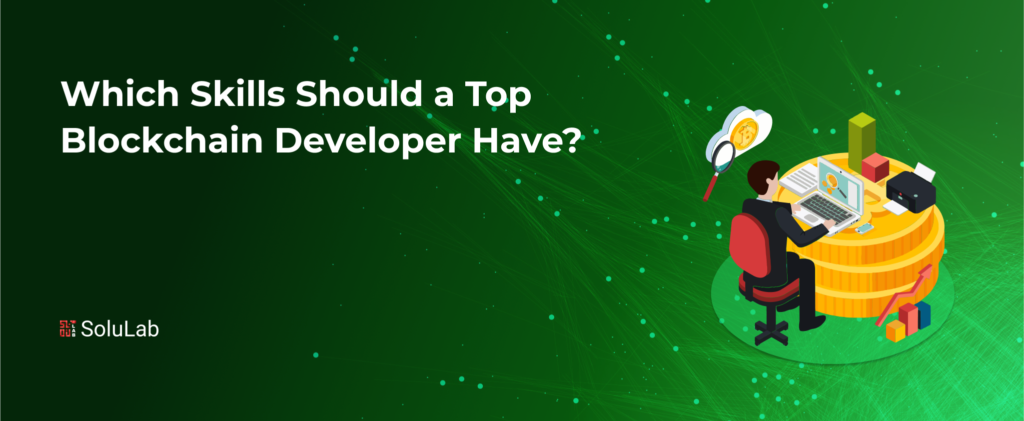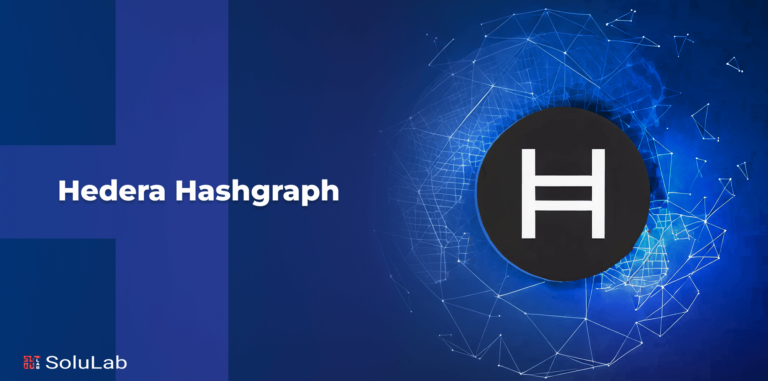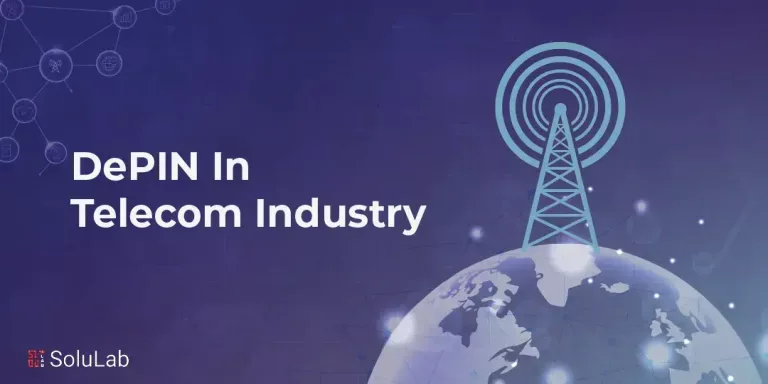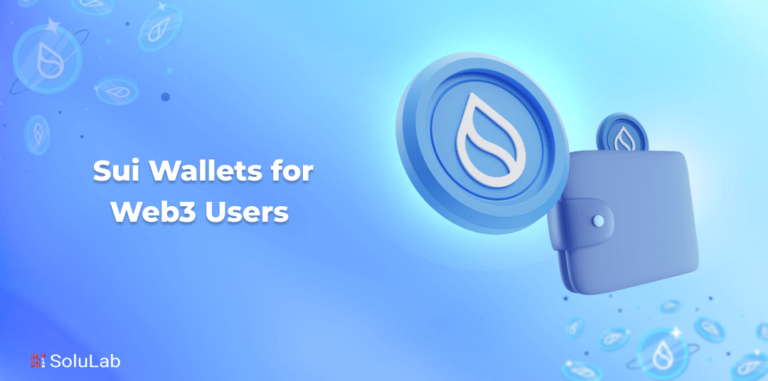
With the emergence of blockchain technology, firms in various industries are realizing the enormous potential it has for revolutionizing corporate processes. Hiring top blockchain developers has become a strategic step for firms looking to improve their digital skills to fully benefit from this disruptive technology. The advantages of hiring a blockchain developer extend beyond simply deploying this revolutionary technology. These educated people understand the complexities of blockchain and can customize solutions to unique company requirements.
This article will examine the unique benefits of employing a blockchain developer and how their skills may help firms improve efficiency, security, and creativity.
Why Should Businesses Hire Top Blockchain Developers?
Blockchain technology has emerged as a revolutionary force in today’s digital landscape, promising to alter businesses worldwide. As businesses attempt to keep up with the rapid speed of technological improvement, the demand for qualified people knowledgeable in blockchain development has become increasingly vital.
-
Unleashing the Decentralization Potential
Blockchain technology offers decentralized and transparent networks, reducing the need for middlemen in various activities.
Companies may leverage the power of decentralization to streamline processes, improve security, and cut costs by employing a blockchain developer for hire. Blockchain developers may use their knowledge to build and execute decentralized apps (dApps) or smart contracts, providing safe and efficient transactions without middlemen.
Read Our Latest Blog: How to Hire The Best Blockchain Developers in Silicon Valley?
-
Improving Data Security
Data breaches and cyber threats continue to represent substantial difficulties to businesses of all sizes. Blockchain technology, on the other hand, has comprehensive security features that can strengthen data protection procedures.
Blockchain engineers can create tamper-proof and immutable ledgers that protect sensitive data from unwanted access or change. By adopting blockchain technology, companies may improve data security, create consumer confidence, and eliminate possible risks.
-
Transparent Supply Chains
Supply chain management is a complicated process involving several players and detailed interactions. Top Blockchain developers may use the technology’s transparency and traceability capabilities to change this area.
Companies can trace the flow of items, verify authenticity, and assure regulatory compliance by deploying blockchain-based supply chain systems. Transparency increases accountability, reduces fraud, and builds confidence among all parties involved.
-
Streamlining Financial Operations
Inefficiencies, delays, and high transaction costs plague traditional financial systems. Blockchain technology, on the other hand, presents speedier, more transparent, and cost-effective options.
A blockchain developer firm may help businesses to create decentralized financial apps like digital wallets or payment gateways that enable fast cross-border transactions and eliminate dependency on middlemen. By implementing blockchain-based financial solutions, companies may simplify their processes, boost productivity, and deliver better financial services to their clients.
-
Empowering Innovative Solutions
Blockchain technology’s promise goes beyond the banking industry to healthcare, real estate, logistics, and others. Companies that hire top blockchain developers receive access to someone well-versed in the technology’s capabilities and possible uses.
These developers may work with teams to investigate novel use cases, create bespoke solutions, and drive organizational digital transformation. Embracing blockchain brings up new opportunities for innovation, allowing businesses to remain ahead of the competition in a fast-changing business market.
How Blockchain Benefits Industries?
Blockchain technology has emerged as a disruptive force with the potential to transform businesses worldwide. Blockchain provides several benefits to various industries by offering a decentralized, transparent, and secure framework for transactions and data management. This will examine how many sectors use blockchain to alter operations, increase efficiency, and create new possibilities.
-
Finance and Banking
Blockchain technology has the potential to assist the finance and banking industries dramatically. By deploying blockchain-based solutions, financial institutions may simplify cross-border operations, cut transaction costs, and improve security.
Blockchain provides quicker and more efficient settlement procedures, removes intermediaries, and enables peer-to-peer payments in real-time. Furthermore, smart contracts on blockchain systems automate complicated financial arrangements, decreasing the need for manual intervention and lowering the danger of fraud.
-
Supply Chain and Logistics
The supply and logistics industries may use blockchain technology to address transparency, traceability, and efficiency issues. Companies may follow the transit of goods from their origin to the final user by deploying blockchain-based systems, assuring authenticity, reducing counterfeiting, and increasing visibility.
Smart contracts incorporated into the blockchain allow for automatic agreement execution, minimizing paperwork, improving inventory management, and allowing faster and more accurate payments.
-
Healthcare
Blockchain can transform healthcare by enabling safe and interoperable platforms for storing and exchanging medical data. Patients may own their health records via blockchain, offering authorization to healthcare professionals and researchers while retaining anonymity.
The technology improves patient care and results by enhancing data security, lowering administrative expenses, preventing medical fraud, and facilitating seamless communication across various healthcare groups.
Read Also: Top Blockchain Technology Companies in 2023
-
Real Estate
Real estate transactions include several intermediaries, paperwork, and time-consuming procedures. Blockchain can simplify these processes by establishing safe and transparent property ownership records and facilitating digital property transfers.
Smart contracts on the blockchain automate contract execution by requiring parties to fulfill preset conditions before finalizing transactions. This automation eliminates the need for middlemen, decreases the danger of fraud, and speeds up the real estate transaction process.
-
Energy & Utilities
Blockchain technology can improve the energy and utilities sectors by enabling peer-to-peer energy trade and improving grid management. Individuals may directly exchange extra energy generated by renewable sources via blockchain-based platforms, encouraging sustainability and lowering dependency on traditional energy suppliers.
Smart contracts allow for automatic billing, lowering expenses and increasing efficiency. Furthermore, blockchain-based grids improve traceability and transparency, allowing for better energy distribution and use of control
How Do You Find a Blockchain Developer for Hire?

Companies are realizing the need to recruit talented blockchain engineers as the demand for blockchain technology continues to climb. On the other hand, finding and hiring the proper blockchain developer may be difficult. We will offer you a step-by-step guide to assist you with hiring a blockchain developer and guarantee that you locate the appropriate candidate for your organization’s needs.
Step 1: Determine Your Needs and Goals
Before recruiting, clearly describe your needs and goals for hiring a blockchain developer. Determine your required talents and knowledge depending on your project or company objectives. Consider blockchain platforms, programming languages, and frameworks that meet your needs. This preliminary clarity will assist you in crafting a focused job description and attracting qualified candidates.
Step 2: Find Relevant Experience and Expertise
Look for appropriate knowledge and competence in blockchain development while analyzing possible applicants. Candidates with a strong history in blockchain technology, such as Ethereum, Hyperledger, or Corda, should be considered. Look for developers that have deployed blockchain solutions, created smart contracts, or worked on decentralized apps (dApps) with success. Examine their understanding of blockchain consensus processes and cryptography.
Step 3: Evaluate Technical Competence and Proficiency
A blockchain developer should be well-versed in programming languages utilized in blockchain development, such as Solidity, JavaScript, Python, or Go. Examine their command of these languages and their ability to work with blockchain frameworks and development tools. Examine their understanding of blockchain architectures and data structures and their ability to build and deploy scalable and efficient blockchain solutions.
Step 4: Assess Problem-Solving and Analytical Skills
Blockchain development sometimes entails solving challenging problems and devising novel solutions. Discuss the candidate’s previous projects and techniques to overcome challenges to assess their problem-solving and analytical ability. Look for applicants who can exhibit critical thinking, attention to detail, and the ability to deal with mathematical and cryptographic algorithms.
Check Our Latest Article: SoluLab Honored By GoodFirms as the Winner of the Trusted Choice Award 2023
Step 5: Consider Blockchain Community Participation
Active engagement in the blockchain community demonstrates a candidate’s enthusiasm and dedication to the field. Candidates who contributed to open-source projects attended blockchain conferences or meetings, or have a presence on blockchain forums and platforms should be considered. This engagement displays their commitment to remaining current on industry developments and their capacity to work with other blockchain aficionados.
Step 6: Cultural Competence and Communication Ability
Examine the candidate’s cultural fit inside your business and their ability to collaborate with current teams. Effective communication skills are vital because blockchain engineers frequently need to communicate complicated topics to non-technical audiences. Look for individuals who can successfully explain their thoughts while also attentively listening.
Step 7: Practical Evaluations and References
Consider doing practice tests or coding challenges unique to blockchain development to verify a candidate’s skills and abilities. These tests can assist you in evaluating their problem-solving abilities, coding techniques, and capacity to deal with blockchain technology. In addition, contact their references to learn more about their work ethic, professionalism, and ability to fulfill deadlines.
Which Skills Should a Top Blockchain Developer Have?

With the rising popularity of blockchain technology, there is an increased demand for competent and experienced blockchain engineers. On the other hand, finding the proper blockchain engineer for your firm might be a difficult endeavor. Understanding the important attributes and talents to look for in a blockchain engineer is critical to guarantee a successful recruiting process. In this, we’ll review the most important things to consider when assessing and hiring a blockchain engineer for your team.
-
Proficiency in Blockchain Technologies and Platforms
A qualified blockchain engineer should, first and foremost, have a solid foundation in blockchain technologies and platforms. They should be well-versed in prominent blockchain frameworks like Ethereum, Hyperledger Fabric, and Corda. Candidates with hands-on expertise writing smart contracts, decentralized apps (dApps), or deploying blockchain solutions are preferred. Examine their understanding of consensus processes, cryptographic methods, and blockchain data structures.
-
Solid Programming Skills
Blockchain development requires many programming languages, and a skilled blockchain engineer should be fluent in Solidity, JavaScript, Python, or Go. They should be able to write efficient and secure code and comprehend the fundamentals of object-oriented programming (OOP). Examine their capacity to work with blockchain-specific development tools, libraries, and frameworks.
Read Our Blog: Top 10 Blockchain Platforms of 2023
-
Expertise in Security and Cryptography
Security is a fundamental feature of blockchain systems. A trained blockchain engineer should be well-versed in cryptography and best practices for safe development. Candidates knowledgeable about cryptographic methods, digital signatures, key management, and encryption techniques should be considered. They should be knowledgeable about resolving potential security flaws and establishing effective security measures in blockchain technologies.
-
Problem-Solving and Analytical Skills
When building and implementing blockchain systems, blockchain engineers face difficult problems. It’s critical to assess a candidate’s problem-solving and analytical skills. Examine their problem-solving strategy by examining previous projects and the tactics they used to overcome hurdles. Look for engineers who can think critically, pay attention to detail, and effectively assess and fix blockchain-related challenges.
-
Scalability and Performance Optimization Experience
Scalability is important for blockchain systems since they must manage increased transaction volumes while maintaining performance. Candidates with expertise in creating scalable systems and optimizing blockchain solutions for performance should be preferred. Examine their understanding of approaches like sharding, sidechains, and layer-two solutions that improve scalability without sacrificing security.
-
Continuous Learning and Adaptability
The blockchain ecosystem continually develops, with new technologies and frameworks appearing regularly. A professional blockchain engineer should be committed to continual learning and remaining current with industry developments. Candidates that actively participate in blockchain networks contribute to open-source projects, attend relevant conferences or seminars, and are curious about new advancements in the industry should be considered.
-
Strong Communication and Collaboration Skills
A blockchain engineer must be able to communicate and collaborate effectively. They should be able to communicate complicated ideas to both technical and non-technical audiences. Examine their abilities to work as part of a team, cooperate with other developers, and effectively and concisely explain ideas.
Conclusion
The benefits of employing a blockchain developer for your company cannot be emphasized. Using their experience and talents, you may have access to many benefits that will catapult your organization to new heights in the digital world.
The best blockchain developer, first and foremost, thoroughly grasps blockchain technology and its applications. They can create and deploy decentralized systems, smart contracts, and distributed ledger solutions suited to your industry’s requirements. This knowledge helps your company embrace the potential of decentralization, improving transparency, efficiency, and security in various activities.
Furthermore, employing a blockchain developer allows your company to investigate novel use cases and discover new prospects. They may work with your teams to discover where blockchain can disrupt established company methods while increasing efficiency. Hire top blockchain developers who can help you remain ahead of the competition and promote digital transformation, whether changing supply chain management, streamlining financial transactions, or boosting data interoperability in healthcare.
FAQs
1. How can you increase data security by employing a blockchain developer?
Blockchain engineers are well-versed in cryptography techniques and safe coding standards. Your blockchain systems may integrate advanced security features like encryption, digital signatures, and private key management. This improves data security by preventing unwanted access, manipulation, and data breaches, eventually protecting sensitive data and preserving data integrity.
2. Can hiring a blockchain engineer help you save money on operations?
Hiring a blockchain developer may help you save money in various ways. Blockchain eliminates the need for intermediaries, lowering transaction fees and expenses. Smart contracts automate tasks, eliminating the need for manual intervention and decreasing human error.
3. How can a blockchain engineer help my business innovate?
Blockchain developers are knowledgeable about upcoming technologies and trends in the blockchain ecosystem. Their skills and experience help them to uncover novel blockchain use cases inside your firm. Using their expertise, you may explore new opportunities, disrupt existing business models, and drive innovation in decentralized banking, digital identity, decentralized apps, and more.
4. What role can a blockchain developer play in regulatory compliance?
Blockchain engineers are well-versed in blockchain-specific regulatory issues and compliance needs. They can design and develop solutions that correspond to industry norms and regulations. Their knowledge guarantees that your blockchain solutions adhere to legal and compliance standards, lowering non-compliance risk and allowing more efficient interactions with regulatory agencies.






